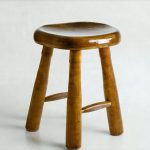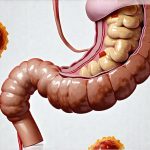Emotional exhaustion is a pervasive experience in modern life, often stemming from prolonged stress, demanding workloads, or challenging personal circumstances. We frequently focus on the mental and psychological toll it takes – the feelings of overwhelm, cynicism, and reduced accomplishment. Less discussed, however, are the surprising physical manifestations that can accompany this state, one of which is changes in bowel habits, specifically experiencing loose stools or diarrhea during periods of intense emotional fatigue. This isn’t necessarily a sign of illness but rather a physiological response to how our bodies cope with chronic stress, linking the gut and brain in ways we’re only beginning to fully understand. Recognizing this connection is vital for holistic self-care, moving beyond simply managing symptoms to addressing the underlying cause: emotional depletion.
The gut-brain axis, a bidirectional communication system between the digestive tract and the brain, plays a crucial role here. When emotionally exhausted, our bodies activate the sympathetic nervous system—the “fight or flight” response—releasing hormones like cortisol. While intended for short-term emergencies, chronic activation disrupts normal bodily functions, including digestion. This can lead to increased gut motility (speeding up digestive processes), reduced nutrient absorption, and altered gut microbiome composition – all factors that contribute to loose stools. It’s a complex interplay, demonstrating how deeply intertwined our emotional wellbeing is with physical health. Ignoring these signals risks exacerbating both the emotional and physical consequences of exhaustion. Learning more about hidden gut issues can help you understand what’s happening in your body.
The Gut-Brain Axis & Emotional Exhaustion
The gut-brain axis isn’t just a theoretical concept; it’s a well-established biological pathway. Neurotransmitters, hormones, and immune molecules constantly travel between the gut and brain, influencing each other. Serotonin, often dubbed the “happy hormone,” is largely produced in the gut! This means that gut health directly impacts mood regulation, while emotional states profoundly affect digestive function. Emotional exhaustion throws this delicate balance off kilter. Chronic stress leads to increased intestinal permeability – sometimes called “leaky gut” – allowing undigested food particles and toxins to enter the bloodstream, further triggering inflammation and exacerbating symptoms like loose stools.
This disruption extends beyond just immediate bowel changes. Prolonged emotional exhaustion can lead to imbalances in the gut microbiome—the trillions of bacteria, fungi, viruses, and other microorganisms residing in our digestive tract. A healthy gut microbiome is essential for digestion, immunity, and even mental health. Stress reduces microbial diversity, favoring potentially harmful bacteria over beneficial ones. This imbalance weakens immune function, increases inflammation, and further compromises the gut’s ability to regulate bowel movements. Essentially, emotional exhaustion creates a vicious cycle: stress disrupts the gut, disrupted gut worsens emotional wellbeing, leading to more stress. Understanding stool testing insights can help identify these imbalances.
Addressing emotional exhaustion therefore requires a multifaceted approach that considers both mental and physical health. It’s not enough to simply “push through” or ignore the physical symptoms; acknowledging and addressing them is crucial for long-term recovery. This could involve stress management techniques, dietary adjustments to support gut health, and prioritizing rest and self-care. Considering how stool testing fits into your overall plan can be beneficial.
Identifying Emotional Exhaustion’s Role in Bowel Changes
Distinguishing between loose stools caused by emotional exhaustion versus a gastrointestinal illness can be tricky. It’s important to consider the context. Is the onset of loose stools directly correlated with periods of high stress or overwhelming emotion? Are there other accompanying symptoms like fatigue, difficulty concentrating, cynicism, or irritability – hallmarks of emotional exhaustion?
- Timeline: Did the change in bowel habits begin after a significant stressful event or period of prolonged strain?
- Consistency: Are stools consistently loose during times of stress and return to normal when stress levels subside?
- Associated Symptoms: Are there noticeable psychological symptoms accompanying the physical changes, such as feeling overwhelmed, detached, or hopeless?
If you suspect your loose stools are linked to emotional exhaustion, it’s essential to rule out other potential causes with a healthcare professional. Food intolerances, infections, and underlying medical conditions can also cause similar symptoms. However, if testing comes back negative and the timing aligns with periods of stress, emotional exhaustion is likely playing a significant role. Self-awareness is key: paying attention to your body’s signals and recognizing these patterns will empower you to take proactive steps towards healing. A comprehensive stool analysis can help differentiate between causes.
Stress Management Techniques for Gut Health
Managing stress isn’t about eliminating it entirely—that’s often unrealistic—but rather learning to cope with it effectively. Several techniques can directly benefit both emotional wellbeing and gut health:
- Mindfulness and Meditation: Regular mindfulness practice reduces cortisol levels, calms the nervous system, and promotes a sense of calm. Even 5-10 minutes daily can make a difference.
- Deep Breathing Exercises: Diaphragmatic breathing activates the parasympathetic nervous system—the “rest and digest” response—counteracting the effects of stress on digestion.
- Physical Activity: Exercise releases endorphins, natural mood boosters that also improve gut motility and reduce inflammation. Choose activities you enjoy to make it sustainable.
- Social Connection: Spending time with loved ones provides emotional support and reduces feelings of isolation. Strong social connections are vital for resilience.
These techniques aren’t quick fixes but rather ongoing practices integrated into daily life. Consistency is crucial for reaping the long-term benefits for both your mind and gut. Consider exploring guided meditations, yoga classes, or joining a walking group to incorporate these stress management tools effectively. It’s important to remember why stool testing can provide valuable insights.
Dietary Considerations & Gut Support
Diet plays a significant role in supporting gut health during times of emotional exhaustion. Here are some key considerations:
- Probiotic-Rich Foods: Incorporate foods like yogurt (with live cultures), kefir, sauerkraut, kimchi, and kombucha to replenish beneficial gut bacteria.
- Prebiotic Foods: Feed your existing gut microbiome with prebiotic-rich foods such as onions, garlic, asparagus, bananas, and oats. Prebiotics provide the fiber that good bacteria thrive on.
- Fiber Intake: Adequate fiber intake promotes healthy digestion and regular bowel movements. Focus on whole grains, fruits, and vegetables.
- Limit Processed Foods & Sugar: These can disrupt gut microbiome balance and exacerbate inflammation.
- Hydration: Staying well-hydrated is essential for optimal digestive function.
Avoid sudden drastic dietary changes, as these can further stress the system. Instead, gradually incorporate gut-friendly foods into your diet while minimizing processed options. If you suspect food intolerances are contributing to your symptoms, consider an elimination diet under the guidance of a healthcare professional. Remember that nutrition is just one piece of the puzzle; it works best when combined with stress management techniques and self-care practices. Looking at stool bacteria ratios can help tailor your diet to your specific needs. And don’t forget to watch for top early signs from stool tests that might warrant further investigation.


















